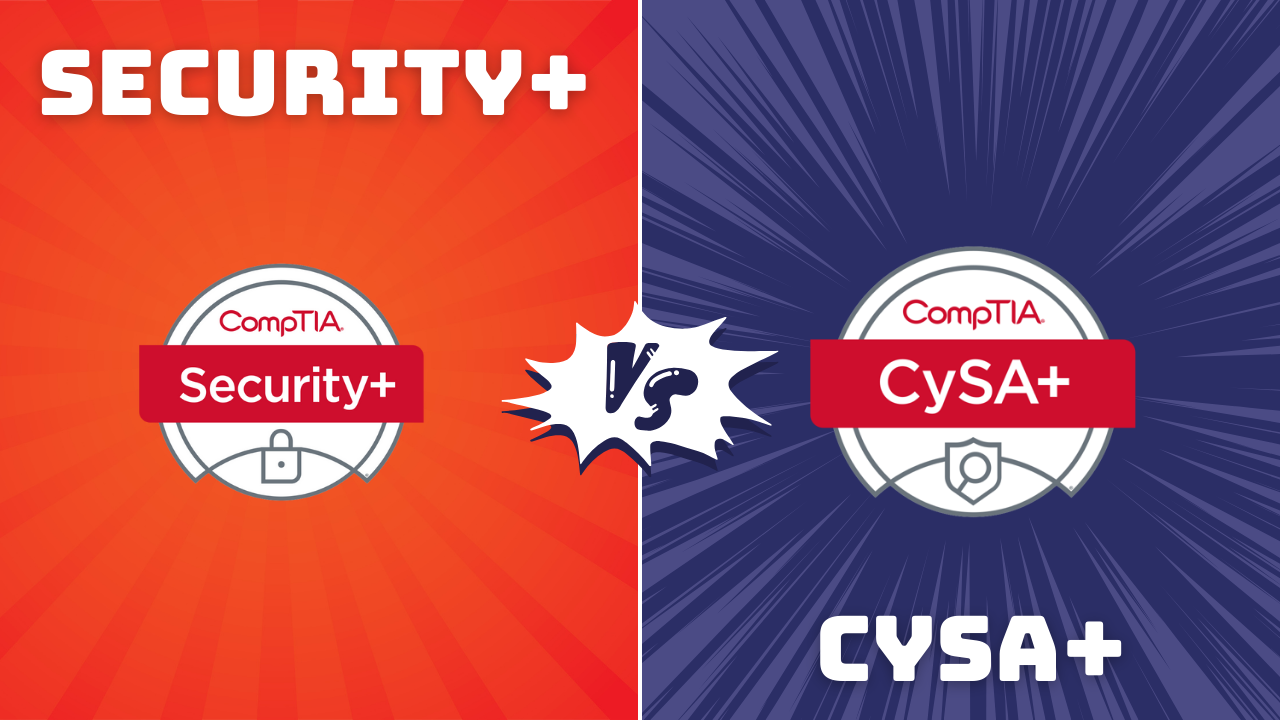Should I get Security+ or CySA+?

If you’re looking to step into the world of cybersecurity, then you might wonder which certification to get first: Security+ or CySA+. It's a big decision and one that can shape your future career in information security. Let’s look at what each certification offers, who they’re aimed at, and which one might be the right choice for your needs.
Understanding the Basics of Each Certification
The Security+ certification by CompTIA is often seen as an entry point into the field of cybersecurity. It’s recognized worldwide and signals to employers that you have the foundational skills to manage and secure IT environments. While it’s considered introductory by cybersecurity standards, it's not for complete beginners - you should have a good grasp of IT basics and networking. Security+ touches on a wide variety of topics, ensuring you’re prepared to handle critical security functions in many types of IT setups. This includes understanding how to monitor systems and respond to different security incidents.
On the other hand, CySA+ - short for Cybersecurity Analyst - is more focused and slightly more advanced. It goes in-depth into security analytics, incident detection, and response. This certification is designed for those who aim to specialize in security analysis and become skilled at spotting and neutralizing cyber threats. It’s particularly valued by people eyeing roles on the defensive side of cybersecurity, like working in Security Operations Centers (SOCs).
Which Exam Fits Your Skill Level?
Choosing between these certifications can also depend on your current expertise. The Security+ exam is considered more entry-level, testing general understanding across a broader spectrum of cybersecurity topics. While it's possible for newcomers to tackle this exam, having a base level of IT experience, ideally two years, is strongly suggested by CompTIA.
CySA+ is more challenging, both in content and the level of detail required. It isn't an exam you'll want to attempt without some serious preparation or without prior work experience in cybersecurity environments. CompTIA suggests around four years of experience in roles like incident response or working in a SOC, which provides a solid foundation for the tasks and industries you'll study.
The Job Market and Opportunities
When it comes to the job market, Security+ is a favorite among employers for many different roles. It frequently appears on job listings as a desired or required certification, giving credibility to job applications for positions like risk assessment consultant, security specialist, or information systems security officer.
CySA+ is more specialized, so it may be mentioned less often in general job listings compared to Security+. However, for roles dedicated to security analysis, like cybersecurity analysts or incident responders, CySA+ stands out as the credential to have. It's more likely to benefit you if you’re aiming for jobs that specifically seek expertise in threat identification and response strategies.
Cost and Maintenance
Both certifications cost the same amount initially, putting them on equal footing financially. The real difference comes in maintaining your certification status. Both Security+ and CySA+ need renewal every three years, but CySA+ requires a bit more effort in terms of continuing education credits to stay valid. Over the three-year period, you need to earn ten more credits for CySA+ than you would for Security+ by participating in security-related activities or earning other certifications.
So, which one?
So, which one should you get? If you’re just starting out or looking for a credential that encompasses a wide range of skills applicable to various job types, Security+ is a smart choice. It opens up opportunities in many roles and serves as a solid foundation for further specialization later.
If, however, you're certain you want to work squarely in security analysis or a related role, then CySA+ could enhance your resume, especially if paired with some real-world experience. Keep in mind though, this is NOT an entry-level cert and several years experience in IT and cybersecurity are expected! Ultimately, both certifications offer value, but your decision should match your current know-how and career goals in the cybersecurity field.
Interested in contributing to our blog or partnering with us? Want to share your story of how Crucial Exams helped you? Contact Us .